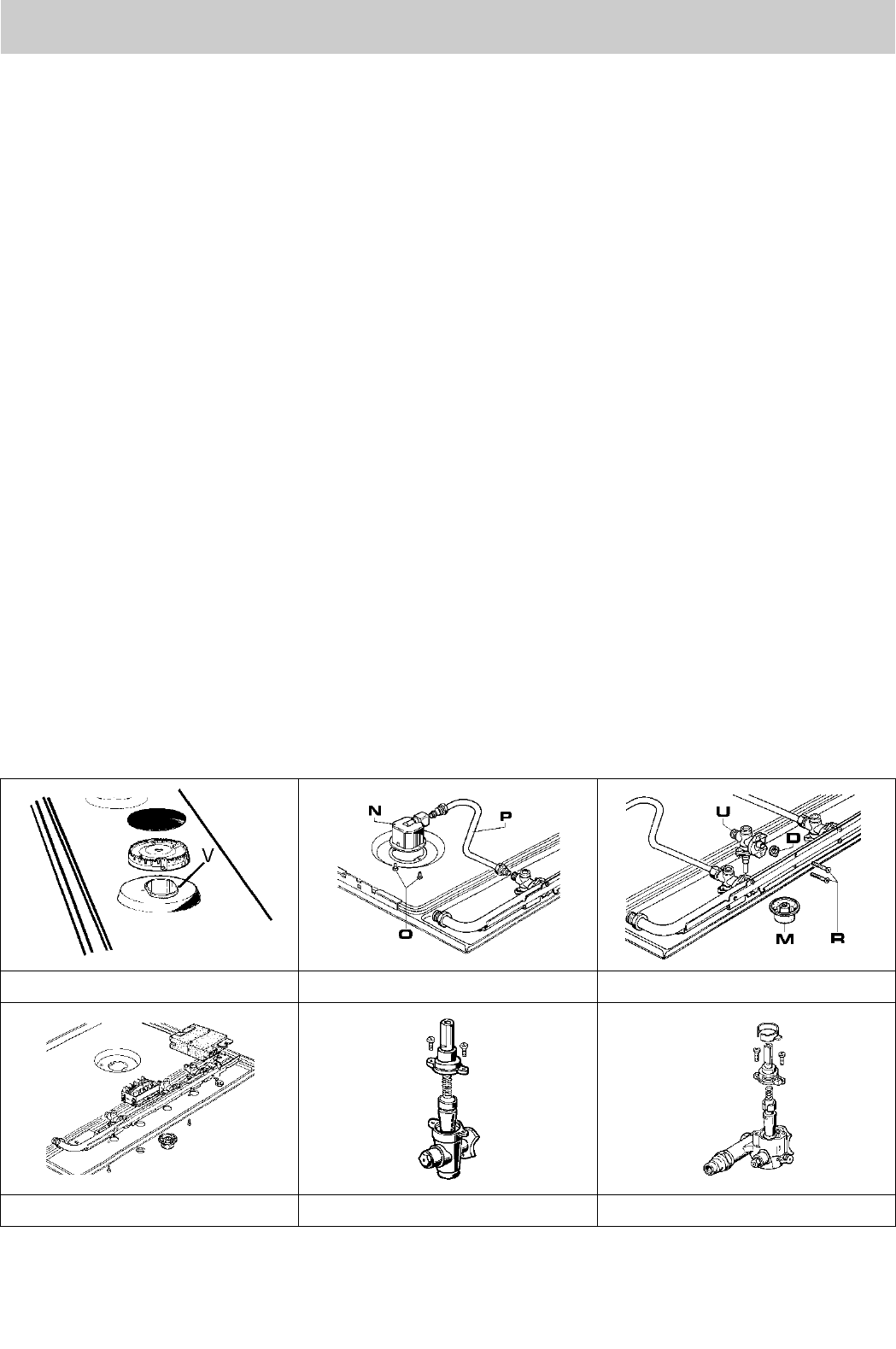
13
SERVICING
FIG. 14 FIG. 15 FIG. 16
FIG. 11 FIG. 12 FIG. 13
Always disconnect the appliance from the
electricity and gas mains before proceeding
with any servicing operation.
12) REPLACING COMPONENTS
Replacement of the components housed inside
the appliance: remove the trivets and the burners
from the upper part of the working table; remove
the fixing screws "V" of the burner (fig. 11) and the
knobs fixed by pressure with the hans, in order to
take off the appliance.
After having carried out the above listed operations,
the burners (fig. 12), taps (fig. 13) and electrical
components can all be replaced (fig. 14).
NB: the ignition bar must be removed before
replacing the taps in appliances with automatic
ignition systems.
It is advisable to change seal “D” whenever a tap is
replaced to ensure a perfect tightness.
Greasing the taps (see fig. 15 - 16)
If a tap becomes stiff to operate, it must be
immediately greased in compliance with the
following instructions:
- remove the tap.
- Clean the cone and its housing using a cloth
soaked in diluent.
- Lightly spread the cone with the relative grease.
- Fit the cone back in place, operate it several times
and then remove it again. Eliminate any excess
grease and check that the gas ducts have not
become clogged.
- Fit all parts back in place, complying with the
demounting order in reverse.
- The tight closure test must be done using a foamy
liquid. The use of the flame is prohibited.
To facilitate the servicing technician’s task, here is a
chart with the types and sections of the powering
cables and the ratings of the electrical components.


















